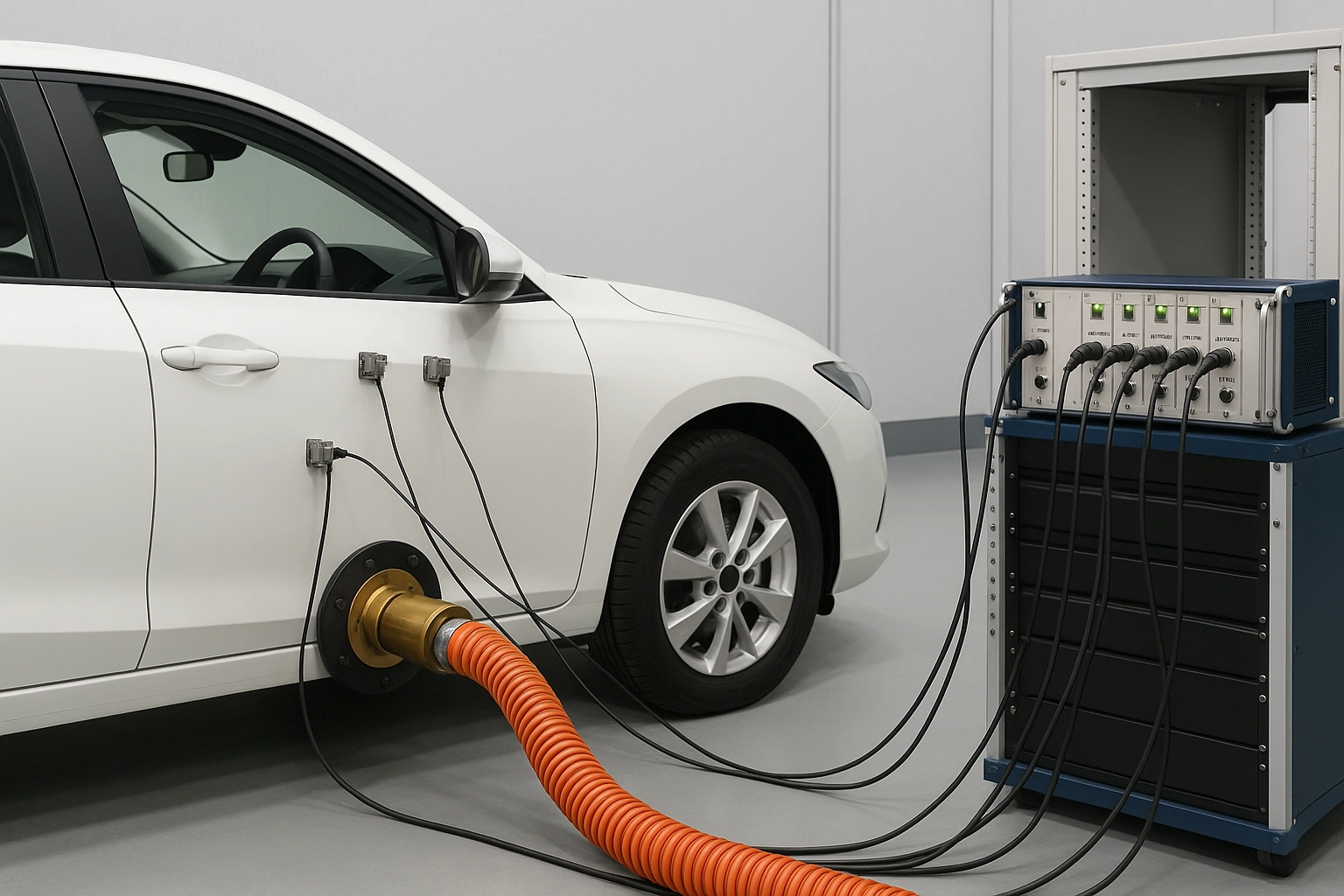IEC 61260 1 Octave Band Filter Specification Testing
The International Electrotechnical Commission (IEC) publishes standards that are globally recognized and widely adopted in the electrical engineering sector. One such standard is IEC 61260, which specifies filter characteristics for audio frequency band-pass filters. This service focuses on testing these specifications using a 1 Octave Band Filter, a critical component in ensuring the accuracy and reliability of audio systems within automotive applications.
Automotive NVH (Noise, Vibration & Harshness) testing is crucial as it directly impacts vehicle passenger comfort and safety. By adhering to IEC 61260 standards during the design phase, manufacturers can ensure that their products meet stringent quality benchmarks set by industry regulators and customers.
The process involves several key steps: selecting appropriate frequencies for analysis based on the intended application; calibrating the test equipment accurately before each run; performing the actual measurements according to prescribed procedures outlined in IEC 61260; analyzing data points within specified bandwidths; comparing results against established tolerances provided by the standard.
For accurate and repeatable results, it is essential that all instruments used are traceable back to national standards. This ensures consistency across different laboratories worldwide and allows for effective troubleshooting if discrepancies arise between measurements taken at various stages throughout product development cycles.
The importance of this testing cannot be overstated; even small deviations from the specified filter parameters can lead to significant issues such as poor sound reproduction or unwanted noise intrusion into cabin environments. Therefore, rigorous adherence to IEC 61260 is vital when designing new models or making improvements to existing ones.
When selecting an appropriate 1 Octave Band Filter for testing purposes, several factors need careful consideration including frequency range coverage, resolution capabilities, and signal processing algorithms employed by the device. It's also important to ensure that any software used supports data acquisition from multiple sources simultaneously if this functionality is required for your specific project.
In summary, IEC 61260 provides clear guidelines on how to perform accurate tests on 1 Octave Band Filters which are integral parts of many modern automotive electronics systems. By following these procedures closely during the design and manufacturing processes, manufacturers can significantly enhance their products' performance while minimizing risks associated with non-compliance.
Why It Matters
The accuracy and reliability of audio reproduction in vehicles are paramount for both customer satisfaction and regulatory compliance. The IEC 61260 standard ensures that the filters used to process sound signals meet strict specifications, thereby reducing unwanted noise and improving overall listening experience.
- Ensures consistent performance across all conditions
- Enhances passenger comfort by minimizing intrusive sounds
- Aids in meeting stringent automotive standards and regulations
- Promotes longer-lasting product lifecycles through robust design practices
By investing in thorough testing according to IEC 61260, automakers can gain a competitive edge by delivering superior audio quality that sets their brands apart from competitors. This not only enhances brand reputation but also contributes positively towards environmental sustainability goals by reducing energy consumption and waste.
Eurolab Advantages
At Eurolab, we pride ourselves on offering comprehensive testing solutions tailored to meet the unique needs of our clients across various industries. Our expertise in automotive NVH testing enables us to provide precise and reliable results when it comes to IEC 61260 compliance.
- State-of-the-art equipment: Equipped with cutting-edge technology that ensures accurate measurements.
- Experienced personnel: Our team comprises highly skilled professionals who are well-versed in the latest testing methodologies and best practices.
- Comprehensive support services: From initial consultation to final report generation, we offer full-cycle assistance throughout every stage of your project.
We understand that time-to-market pressures can be intense; therefore, our efficient service delivery allows you to stay ahead of schedule without compromising on quality. Additionally, our commitment to sustainability extends beyond just reducing emissions - we also strive to minimize waste generated during testing processes by optimizing resource usage wherever possible.
Competitive Advantage and Market Impact
Adhering strictly to IEC 61260 standards offers several competitive advantages for automotive manufacturers:
- Differentiation: Meeting these stringent requirements positions your company as a leader in innovation and quality.
- Customer satisfaction: Superior sound reproduction enhances customer experience, leading to higher retention rates and positive word-of-mouth recommendations.
- Regulatory compliance: Ensures smooth operations by avoiding costly delays or fines due to non-compliance issues.
In the highly competitive automotive market, where every detail counts towards gaining an edge over rivals, adhering rigorously to international standards like IEC 61260 can make all the difference. It demonstrates a commitment to excellence that resonates strongly with discerning consumers and stakeholders alike.
Moreover, compliance with these standards fosters trust among regulatory bodies and other industry participants, opening up new opportunities for collaboration and growth within the sector.





